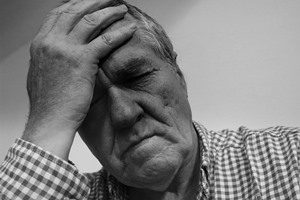According to statistics, 7.3 % of the depression demographics are among people aged 40-59 years old and 4% are among elders ages 60 and older which is very close to the population of depressed adolescents which is 4.3%.
There are a lot of factors that can cause depression as you age – experiences of loss, chronic illness, a side effect of medications and other challenges of aging.
Although sadness or feelings of despair are signs of depression, others may not feel “sad” at all but experience other signs and symptoms. Some of these are sleep disturbances, weight loss, slowed movement/speech, memory problems, increased use of alcohol/drugs, fixation on death and some physical problems such as arthritis pain or worsening headaches.
Whether you are the one who is experiencing depression or have a loved one that is showing signs, here are 6 helpful strategies to beat this crippling and imprisoning condition.
1. Have a purpose.
Having a sense of purpose is very important, more so as you reach your golden years. Whether it’s big or small, a motivation in life is very helpful to keep on waking up every day and see the bright side of life.
2. Pursue new and old hobbies.
Gardening, sewing, golfing, playing cards… etc. Having a hobby is a great way to stimulate the brain and maintain a sense of purpose in your life.
3. Take care of something.
Some of you may live with your grandchildren but for those who don’t, pets are very helpful to ward off depression. If you feel that you aren’t capable of owning one, another option is to visit a local shelter and help work or play with the animals. If you are not an animal person, tending a garden is also a good way to feed your need to nurture.
4. Be active in the community.
Community involvement is a great opportunity to socialize with other people, give back to the community and also participate in different kinds of activities.
5. Stay Healthy and Active.
Have regular check-ups with your doctor to make sure that your health is okay and to avoid potential health issues. Exercise is also very important in keeping your health healthy, reducing strength and maintaining strength and flexibility – making you more confident and happy.
6. Maintain good relationships with family & friends.
Last but definitely not the least, relationships contribute to overall happiness. Spend time with your family and friends by visiting them, hosting get togethers or interacting with them if your loved ones live far from you. Studies show that looking at photos of your significant other, loved ones and friends have a positive effect in your mental health.
Depression isn’t a sign of weakness or flaw, it can happen to anyone at any time and any age. It’s something that we should never ignore. It’s just a matter of how you deal and cope with it.
References:
https://www.cdc.gov/mentalhealth/data_stats/depression-chart-txt.htm
http://www.helpguide.org/articles/depression/depression-in-older-adults-and-the-elderly.htm










